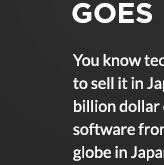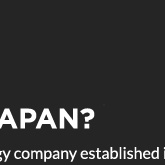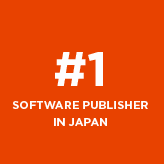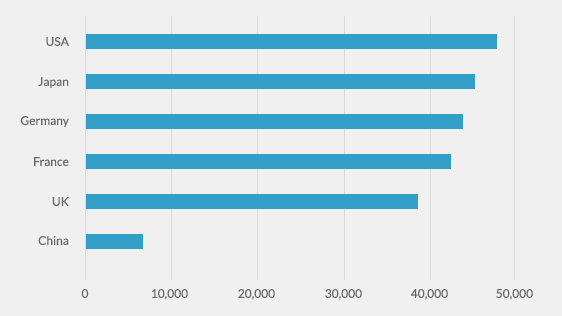
-
the japanese market
Give Japanese consumers what they want—technological innovation—and your business will grow.
Read more
-
doing business in japan
Success awaits companies with the ability to adapt their product or service to the Japanese consumer.
Read more
-
the japanese consumers
Japanese consumers are tech-savvy, information-hungry, early-adopters eager to embrace Western technology.
Read more
the japanese market
Give them what they want—technological innovation—and your business will grow.
Japan has long been known as the king of hardware. While the landscape is rapidly changing this truth leaves behind an under-penetrated opportunity for American software businesses. There’s little doubt that Japanese consumers are hungry for innovating technology—launched in 2010, 27% of Evernote’s 12 million subscribers are already out of Japan (second to it’s US user profile).
Technology companies successfully entering the Japanese market are likely to see profitability that exceeds that of any other market in the world. Why then, have some of the most talented and aggressive businesses yet to penetrate the market? The answer: it’s complicated. The Japanese market is insulated from foreign economy by countless barriers to entry: At a basic level by government restrictions, language, currency and distribution, to far more complex issues like culture, etiquette, taste, business to business and business to consumer relationships. Companies that deliver the best product in the most effective manner capitalize on Japan’s influential tech-crowd. Period. This is virtually impossible for most American companies conducting business abroad, without partnership or representation. It doesn’t need to be this way.
doing business in japan
Success awaits companies with the ability to adapt their product or service to the Japanese consumer.
Despite its enormous opportunities, entering the Japanese market and conducting successful business can be difficult for US businesses due to vast cultural differences. Japan is a complex and protected market that demands great patience and persistence, as well as an understanding of foreign business dynamics and expectations. For this reason, foreign companies with qualified Japanese representation—who understand the cultural elements imperative to introducing new products to consumers effectively—are at a distinct advantage over their counterparts. Japan is a high-context culture: their communication is highly effective within the context of their culture; meanings are often found in context, rather than through explicit, clear, and straight forward messages. Not surprisingly, the ability to launch a product, grow your business, gain trust, record profitability, and thrive in Japan without an effective strategy is dangerous and expensive—quite simply, too risky a prospect for most businesses.
The impact of a successful foreign partnership in entering the Japanese market is measurable in dollars and sense. Notoriously difficult—yet highly important—direct distribution elements in Japan can be tackled with ease, if you know the right people. Barriers such as: localization and testing, packaging, pricing, distribution, advertising and POPs (point-of-purchase ads), manufacturing, direct sales— shelf space, product availability—promotion, customer service, and beyond. For tech firms eager to penetrate the Japanese market, partnerships of this kind lead to more creative, confident, innovative, and resonant messaging, and greater success in both mission and revenue terms.
Japanese Consumers
Japanese consumers are tech-savvy, information-hungry, early-adopters eager to embrace Western technology. Their thirst for unique and smart digital products make them the largest group of technology innovators in the world—with purchasing power per capita ten times greater than China. They’re driven by self-expression, connectedness, convenience, efficiency, and they’re purchasing products and ideas at an alarming rate.
For overseas businesses, this influential population provides just the reason to enter Japan’s market. Though, it takes time to win the confidence of Japanese customers. You have to prove your ability to address their requirements—demonstrating the value that your product can provide—in order to see the greatest reward. A well-localized marketing strategy is essential for success with the Japanese market. American buying behavior, preference, and motives must be translated to meet those of the Japanese consumer. For this reason, companies that employ foreign partners, such as Sourcenext, who knows the market and its consumer intimately, achieve success in the Japanese market.



































